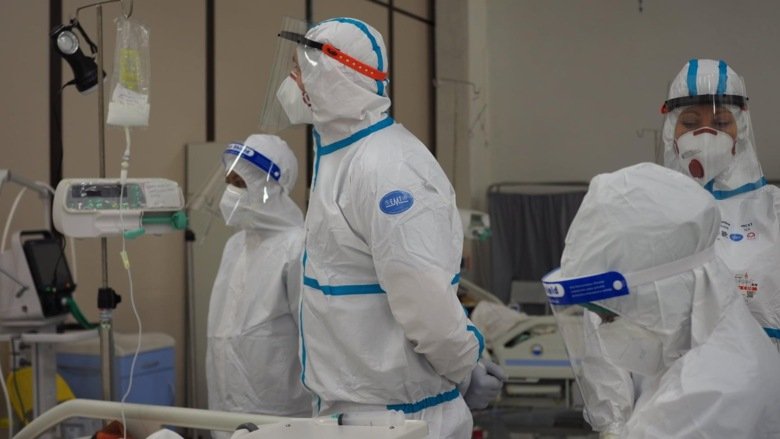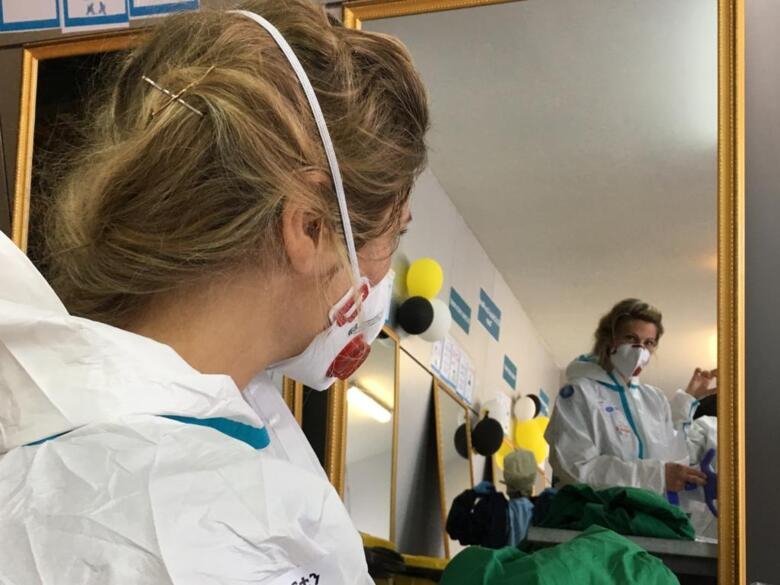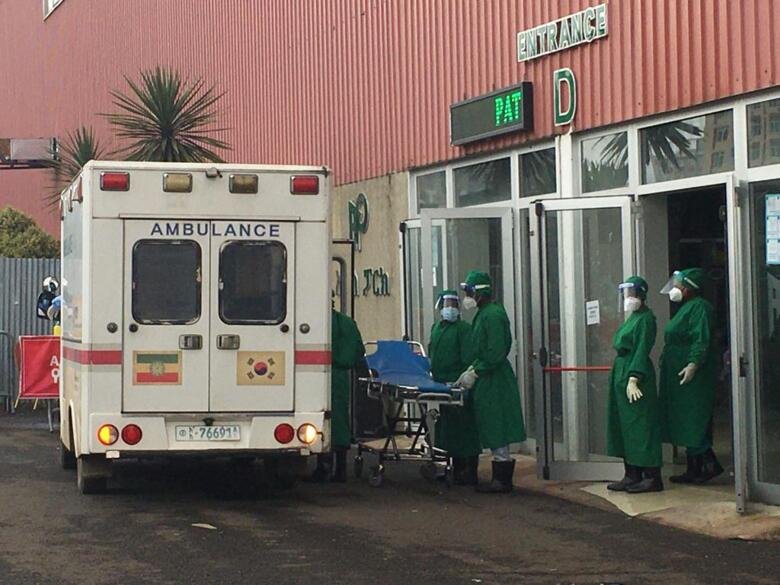KI researcher went to Addis Abeba to participate in the care of COVID-19 patients

By the time KI-researcher and nurse Martina Gustavsson arrived in the Ethiopian capital of Addis Abeba in September, the staff at the city’s COVID center had been working every day since April. Tired and worn out, they were caring for more than 200 patients. They had not met their families for almost five months. Yet they were determined to carry on.
“I was hugely impressed by the commitment,” says PhD student Martina Gustavsson, who researches moral stress at the Department of Global Public Health, Karolinska Institutet. Her previous experience includes working overseas with viral diseases, such as in Congo during the Ebola epidemic on behalf of Doctors Without Borders.
Last spring, she led the project at KI to produce COVID-19 training programmes for Swedish healthcare staff.
At the end of the summer, she was asked if she wanted to travel to Addis Abeba with a WHO-certified Emergency Medical Team (EMT) from Poland. The team is one of several certified by the WHO to assist other countries in the event of a disaster – a system that KI Professor Johan von Schreeb helped to set up.
Travelled on behalf of the WHO

The Ethiopian health department had asked the WHO for assistance in developing the Millennium Hall Covid Care Center in Addis Abeba, a former concert hall rebuilt into a hospital last spring. The Polish team was considered a good fit given their previous experience from similar missions in Italy, Kirgizstan, Tadzhikistan, Lebanon and Madagascar. This time they had Martina Gustavsson and anaesthetist Anders Mattson from Visby with them.
“Our job was to assess the situation on the ground and see what improvements we, together with the personnel, could make, especially in the intensive care unit,” says Gustavsson.
When the group arrived on Sept. 22, more than 200 patients were admitted, well under the center’s 1,000-patient capacity. A lot worked well. For example, there was a good flow to their work. The staff had a special place for putting on and taking off their personal protective equipment, a washing facility outside the centre and an incinerator for waste. The flow within the high-risk zone was clearly structured and outside, in the “green zone”, was the administrative section and a patient kitchen.
Lack of resources
Yet there was room for improvement. For instance, there were no resources for making arterial blood gas analyses, which are necessary for assessing a patient’s health and pulmonary function.
“The IC unit also lacked drugs, especially anaesthetics, which meant that some patients being ventilated could not be properly sedated,” Gustavsson recalls. “There was also a lack of material for redressing wounds and urine catheters, and all equipment from oxygen tubes to ventilator apparatus was reused despite sometimes inadequate disinfection and sterilisation.”
Some issues could be resolved there and then with the staff. For instance, a plan was drawn up for establishing a steam sterilisation process and revised disinfection process. Anaesthetic drugs and material for blood gas analyses were harder to get hold of due to a global shortage.
Supported care workers

But perhaps their most important task was to support and train the staff, who largely lacked training in the handling of IC equipment.
“There had been so much focus on trendy machines like ventilators that simple ways to prevent infection had been overlooked. We and the staff were quickly able to identify key measures, by creating checklists and implementing a shift work schedule so that there was always someone overseeing what needed to be done.”
Heroism at a price
All heroic efforts come, however, at a price. The stress could have a numbing effect on the relations to the patients.
“If you never get to rest and process what you’ve been through, you have to block things out to cope,” Martina Gustavsson says. “I’ve seen that in my research, and it was clear here too. This just shows how important it is to cater for the medical staff’s well-being and to give them a chance to rest.”
The health of hospital workers has been a highly topical issue during the pandemic. At KI, Martina Gustavsson is engaged in a research project in which Swedish care workers who have worked with COVID patients get to answer questions about the different choices and situations they must face. The data collection is expected to be completed in November, after which the analysis work will begin.
In October, Martina Gustavsson returned from Addis.
“What moved me most, however, was the commitment of all the doctors and nurses,” she continues. “Many of them had left their homes to come to Addis and hadn’t had a single day off since April. One former nurse had left a comfortable job in IT to join the care team. He was now very worn out but there was no question of him giving up.”
